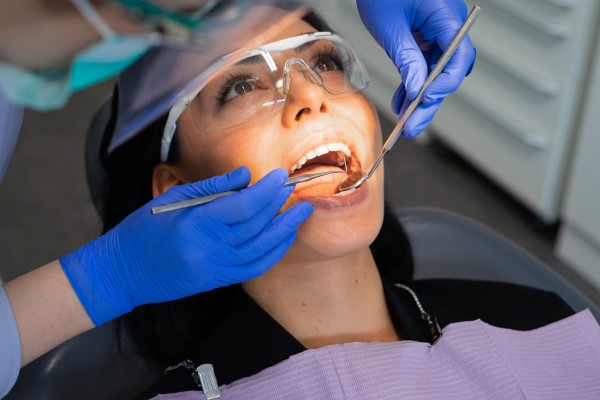TMJ: When To See a Professional

People who suffer from TMJ disorder have symptoms that may range from mild to severe. Milder symptoms may improve from at-home remedies. However, some symptoms interfere with daily living and can cause long-term issues, and this requires professional intervention.
When to try home care
TMJ refers to the temporomandibular joint, which connects the jaw to the skull. It controls movement of the jaw, including chewing, yawning, and speaking.
Symptoms
When the joint is injured or misaligned, it is known as TMJ disorder, and it results in various symptoms, many of which are temporary and can be self-managed. Common symptoms include:
- Tenderness or pain around the jaw
- Unilateral or bilateral pain around the joints
- Clicking while chewing or yawning
At-home treatment
When symptoms first appear, sometimes home remedies can relieve the discomfort. Placing cold or heat packs over or gently massaging the painful areas may be helpful. It also helps to eat soft foods that give the jaw a rest. Examples include oatmeal, yogurt, soup, and eggs.
Stress and clenching the jaw often contribute to TMJ disorder symptoms. Be hyper-aware of tensing the jaw muscles and make a point of relaxing by keeping the teeth apart and lips together. People with symptoms should also be aware of excessive talking, resting the phone on the shoulder, or yawning widely, as these exacerbate discomfort. If necessary, over-the-counter medications may be taken to relieve the pain, but it should not be a long-term solution.
When to seek a professional
Not all TMJ pain will subside with at-home care.
Symptoms
If pain and tenderness persist or get worse, it is necessary to see a dentist. It is important to seek help right away if the jaw is locked in either the open or closed position. Persisting facial pain is also be a good reason to make an appointment for dental care. If pain interferes with normal sleep, a dentist can help determine what is going on.
Potential treatments
The dental professional will conduct an examination and, potentially, additional diagnostic tests such as X-rays, a CT scan, MRI, or arthroscopy. Depending on the cause of jaw pain, a variety of treatments may be recommended. For short-term help, a muscle relaxant may be prescribed to reduce muscle spasms.
Some nondrug therapies include the use of mouth guards or oral splints and physical therapy treatments. Counseling may also be beneficial to determine the factors, such as stress, nail-biting, or chin-leaning, that aggravate TMJ pain.
In extreme circumstances, when other methods do not relieve the pain, more invasive procedures may be recommended. These include injections, arthrocentesis, and jaw surgery.
Conclusion
TMJ disorders can produce a wide range of symptoms. Many of them are temporary and can be managed with conservative care. However, if pain or lack of function persists, professional help should be sought to determine the cause of the issue and the most effective ways to treat it.
Request an appointment here: https://dentistryonpark.com or call Dentistry on Park, LLC at (781) 443-8131 for an appointment in our Stoughton office.
Check out what others are saying about our dental services on Yelp: TMJ in Stoughton, MA.
Recent Posts
Gneuromuscular dentistry is a special approach to dental care that focuses on how the jaw, teeth, and muscles work together. The goal is to ensure these mouth parts are properly aligned and functioning smoothly. By addressing problems with the jaw and surrounding muscles, gneuromuscular dentistry can help reduce pain, improve how the bite works, and…
TMJ DentistTMJ disorder can be a serious condition and is not something you should ignore. This disorder can affect people of all ages, even those who have good oral health. The effects of TMJ include pain in the jaw that can radiate to other parts of the face. If you do not address these symptoms,…
A TMJ dentist is a dentist who is trained in general dentistry but continues their education with a focus on the temporomandibular joint and its disorders. They spend their days treating general dental conditions, however, much of their efforts are spent diagnosing, managing, and treating TMJ disorders.TMJ dentists are great resources to utilize when suffering…
Temporomandibular joint disorder or TMJ disorder refers to a condition that affects the muscles, ligaments, and joints surrounding the jaw. The TMJ is a ball and socket hinge that uses sliding and hinging motions to function. The joint is at the back of the jaw and includes a bony bump called the articular eminence. The…


